|
Aiming at maximizing profits, the Market economy and Globalization have created the “Fortune 500”, but their demerits of simplistically pursuing fortune, combined with the limits of the industrial economy, have rung the alarm bell. Therefore, in 1995, executives and leaders with a keen awareness of their social responsibilities created the “Future 500” in a bid to help businesses to adapt themselves to the New Economy through transforming business models, and by helping to shape future enterprise by setting examples of “Good Companies.”
Now, attention to fulfilling the triple responsibility of enterprises—by emphasizing the financial bottom line, the social bottom line and the environmental bottom line—has become a good symbol of corporate culture and values in this new era. It has also become an important vehicle for making companies more competitive and sustainable in the 21st century; and it is a new trend in the business community.
Foremost among our members are Fortune 500 companies determined to prosper in the future. Big names in this group include, for example, Coca-Cola, GM, Hewlett-Packard, Nike, Boeing, Bank of America, Adobe Systems, among the 370-plus excellent companies who are now in the Future 500 fold. Subsidiaries of Coca-Cola located in 200 countries have also developed 300 Future 500 GC members.
Nowadays, a lot of organizations and NGOs are dedicated to promoting global sustainability from different perspectives. Our solution is not limited to theoretical debate and the dissemination of new concepts about sustainability, but it is centered on the real implementation of better corporate practices. The Future 500 uses sophisticated and realistic tools to help companies harmonize economic profits with social and environmental benefits.
The mission and principles of the Future 500 coincide with the scientific approach to development, characterized by people-centered, comprehensive, coordinated and sustainable development, which is advocated by the new leadership of China. Aiming at delivering maximum returns for shareholders, employees (the workplace), the market, society and the environment, the Future 500 embraces the triple bottom lines in terms of economy (accountability), society (ethics) and environment (sustainability). It helps the development of future-oriented enterprises by improving the following five aspects of corporate setting: corporate governance, the work place, market and product quality, the community, and sustainable development,.
One of the main tools of the Future 500—the GC360 process—follows 24 internationally recognized standards, using a checklist of 208 items on a structured questionnaire to help businesses, as corporate citizens, to close their gaps in terms of responsibilities and obligations. The process of becoming a Future 500 member constitutes a platform on which enterprises strive for sustainable development.
In his address to the Future 500 China Forum 2005, Jiang Zhenghua, Vice Chairman of the Standing Committee of the National People’s Congress, made this point clear: “Future 500 has emerged as a pointer in the right direction for future development, as it advocates the triple bottom line of a company which combines economic, social and environmental responsibilities. We believe it represents the right direction of development in this post-industrialization era. ... Future 500 is the answer to the world-wide call for sustainable development as well as the orientation of decision-making in China.”
Four years after its debut in China, the Future 500 has seen its membership growing steadily in this Middle Kingdom. The process—Global Citizenship 360—is being deployed at 14 Chinese companies, from oil giant Sinopec, Guodian Nanzi, Haier Group, Shenzhen Water Group, DHV China, Tengxu Garment, Senluo Ecology Group to small suppliers in Guangdong.
If you embrace the ideals and principles promoted by the Future 500; if you want to become a pioneer member of Future 500 in China; if you want to play a leadership role in the global shift towards new business models; if you want to improve your company’s reputation in society; if you want to “walk the walk and talk the talk” in the international campaign to implement a scientific approach to development; or, if you want to contribute to the cause of building a harmonious society through responsible business practices—then you are welcome to be part of this visionary project.
Regards

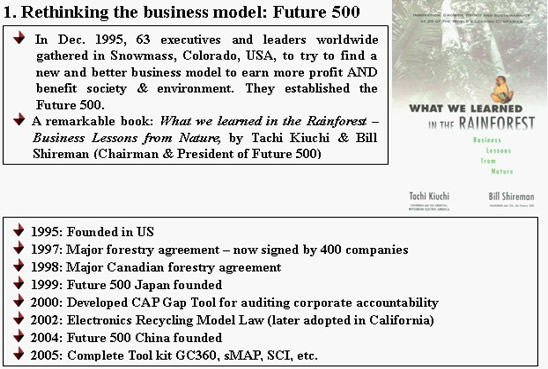
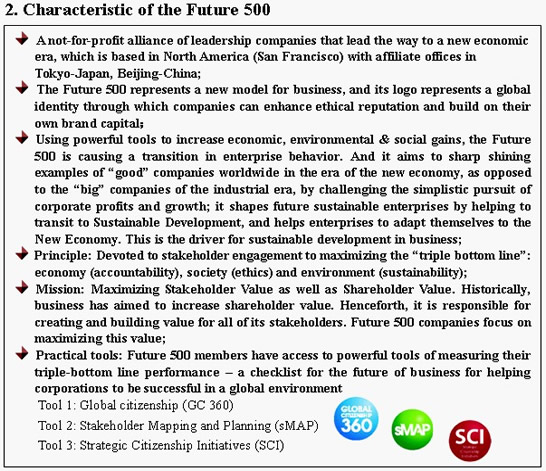
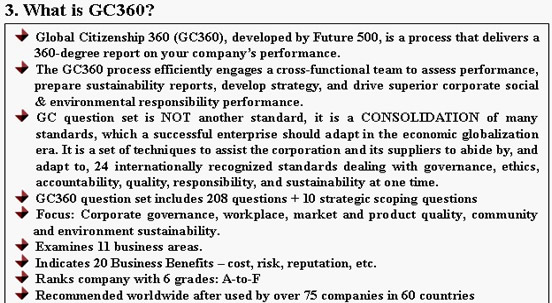
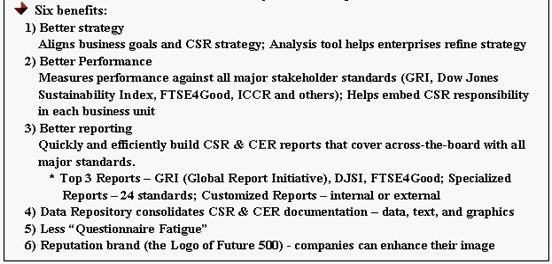
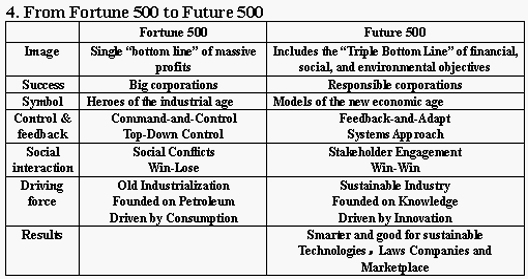
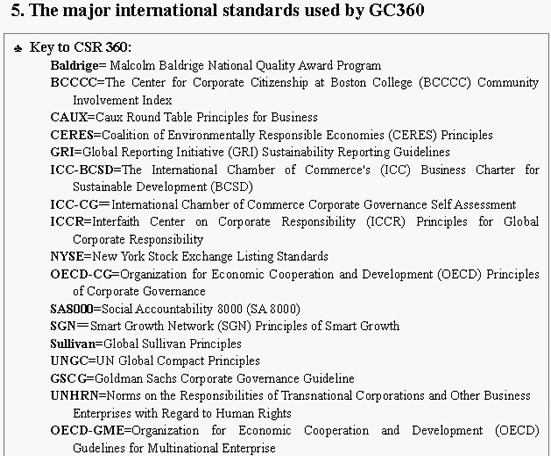

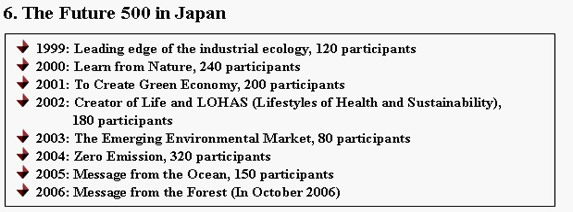
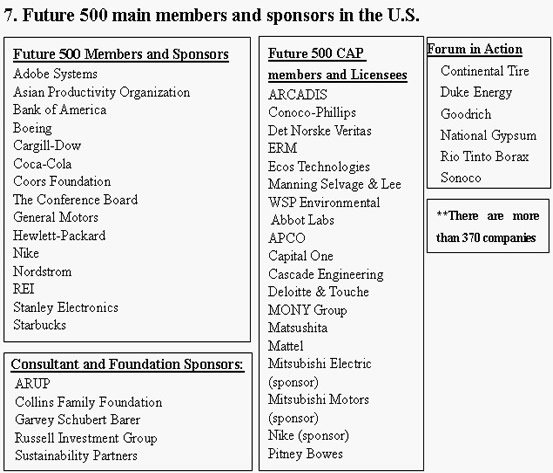
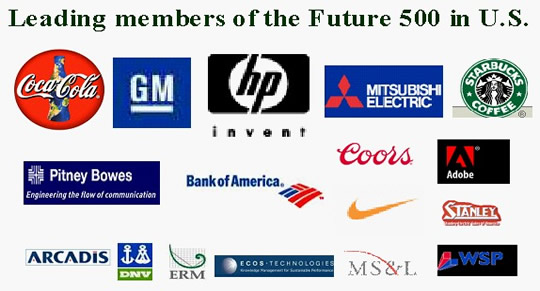
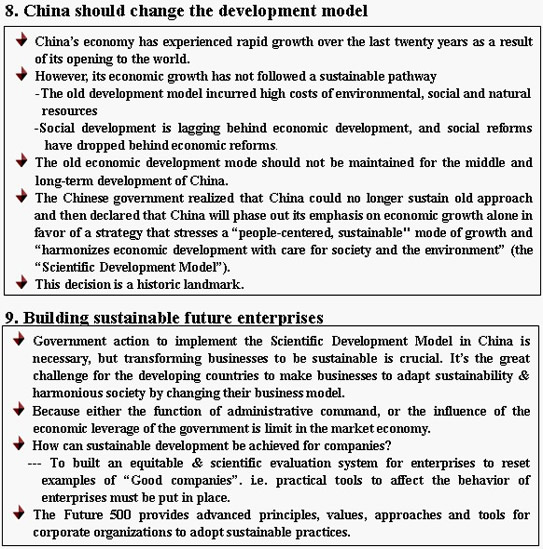
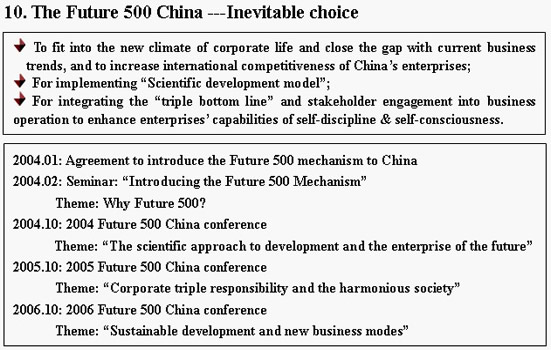
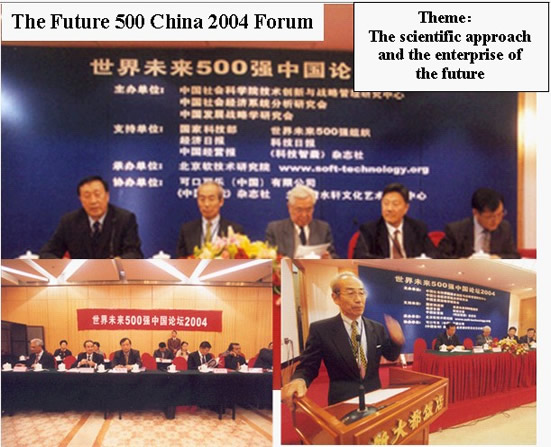
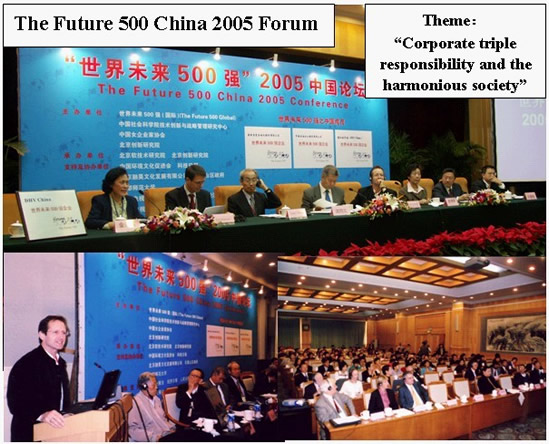
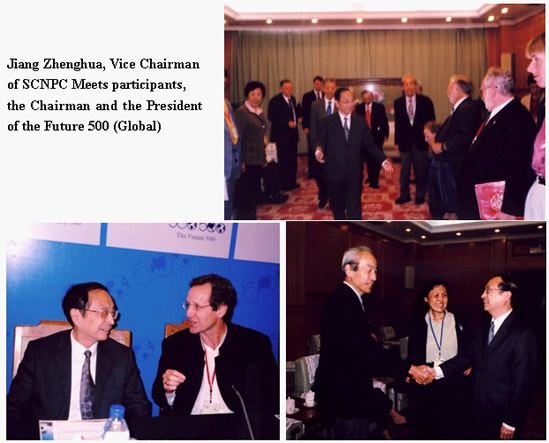
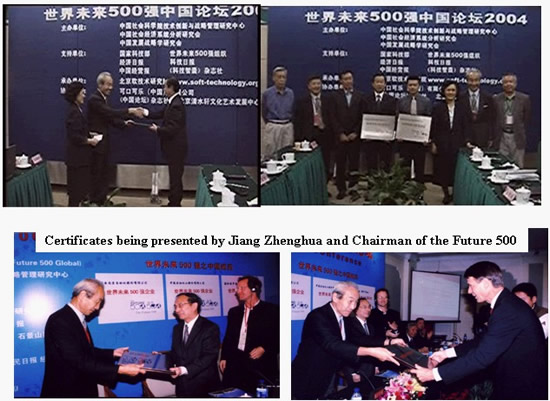
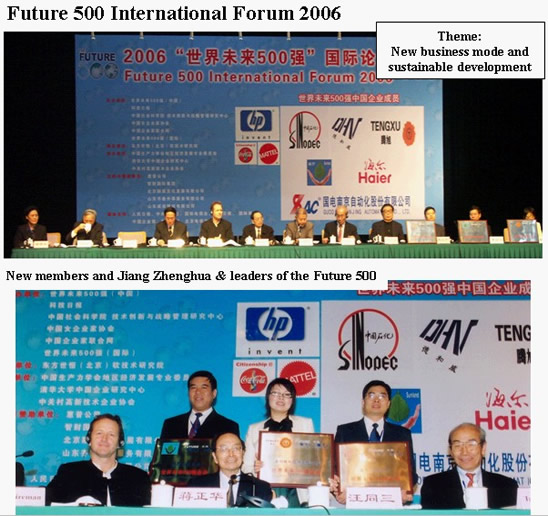
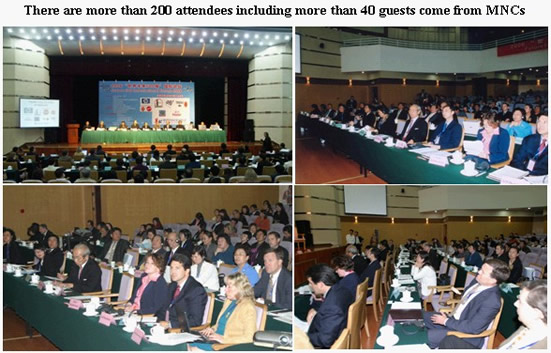
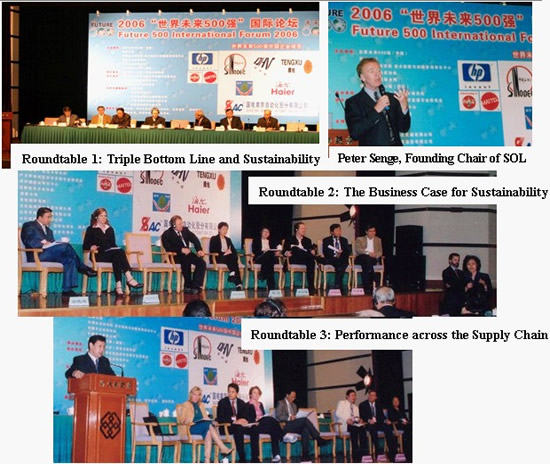
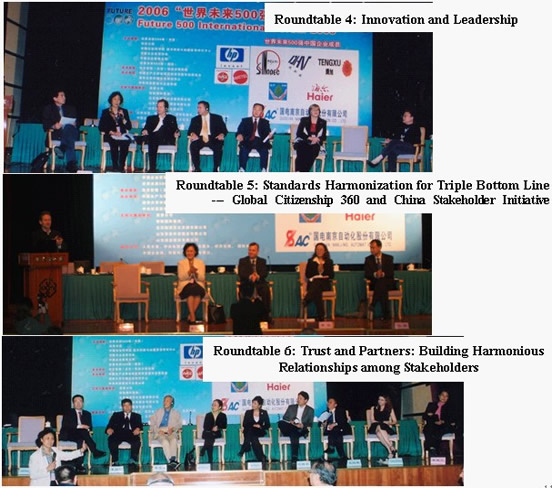
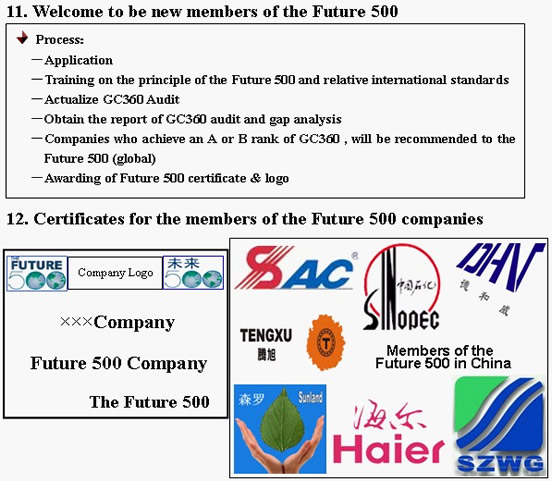
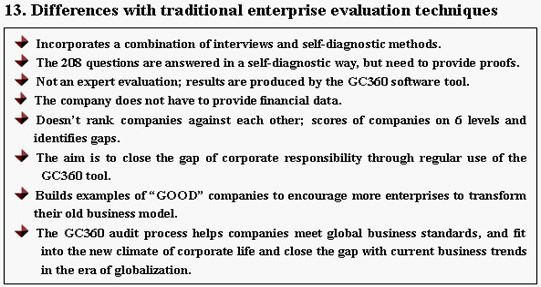
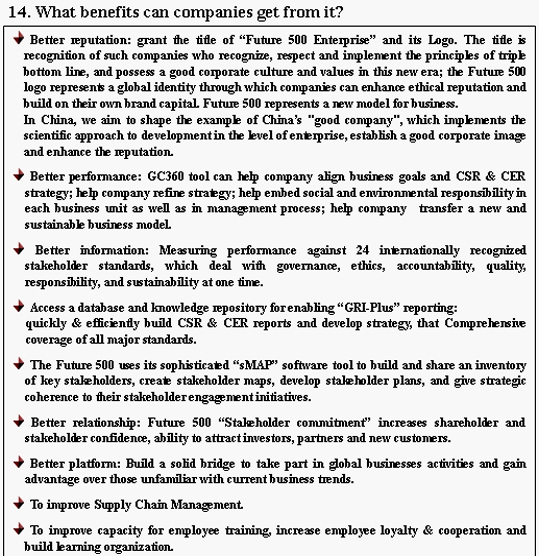
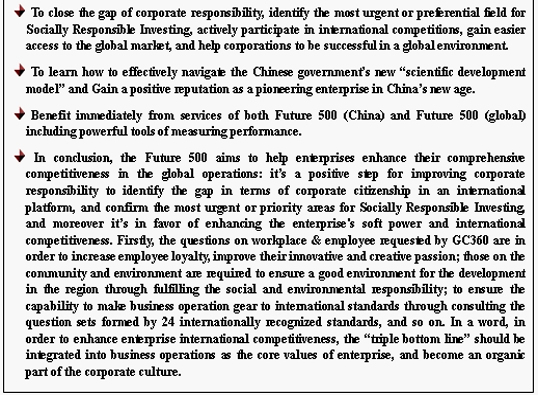
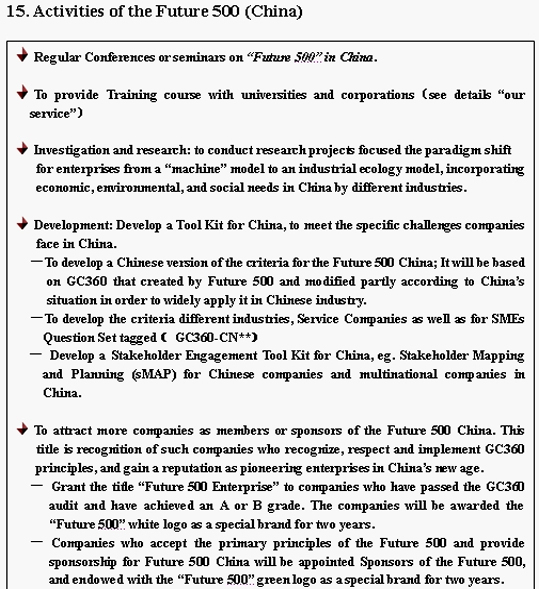
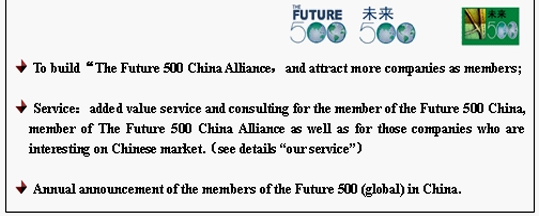
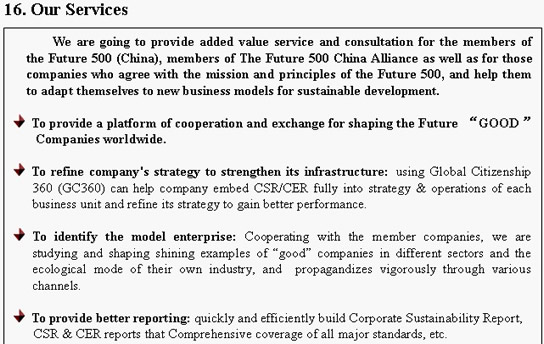
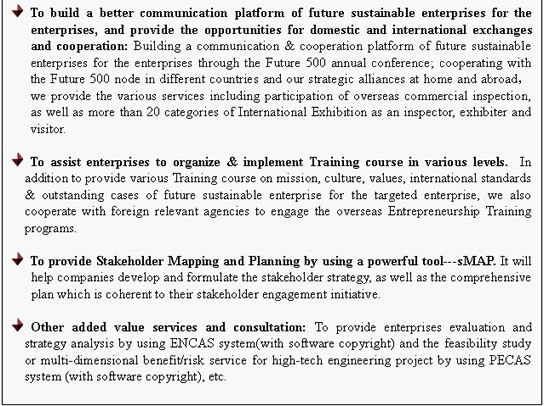
|






























